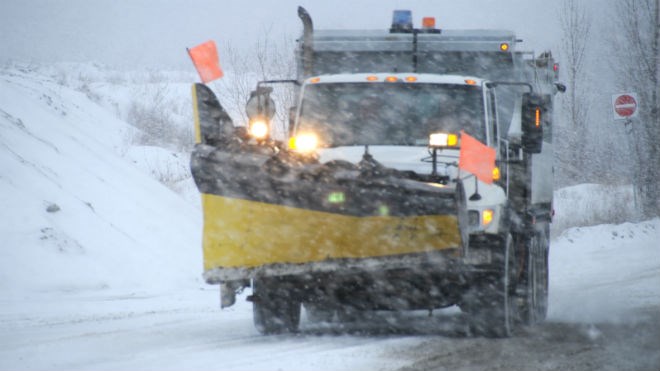After a difficult year for snow removal in 2018, city council boosted the snow removal budget in 2019 by $1 million, increasing it to $18.5 million.
Just more than three months into 2019 however, snow removal is already running $2.9 million higher than that amount, following a record-breaking winter season that saw 396 centimetres of snow fall between last fall and the end of March.
Traditionally, red ink in the snow removal budget is paid for out of a reserve fund replenished during milder years. But severe weather conditions in the last several years has largely exhausted that fund.
Ward 5 Coun. Bob Kirwan told members of the community services committee Monday there's a flaw in the way they determine the snow budget.
Each year, they don't know for certain where the snow removal budget stands until December — the same time the city budget is almost finalized.
“So we don't know if we will have enough money in the budget to deal with the shortfalls,” Kirwan said.
One of the challenges, said infrastructure GM Tony Cecutti, is we're affected by climate change more acutely than other countries.
“Canada is one of the countries that will experience one of the most significant impacts,” Cecutti said.
For example, the Great Lakes are a lot warmer than they used to be, and that can contribute to heavier snowfalls in a place like Greater Sudbury.
“It makes sense we had a lot of precipitation,” Cecutti said. “It's very difficult to predict what type of weather we're going to have in the next 10 years.”
Snow removal is one area of city government that is costly but doesn't provide lasting value in the way road repair or other city activities do.
“It's a big expense, and it's not an expense that provides lasting value to the community,” he said. “It's short-term value.”
While there's no return on investment, he said it's a critical service that will get more expensive as time goes by.
Kirwan said it's likely time to look at adding more snow removal capacity to ensure that residents are getting the service they need.
“And I don't think we're providing you with enough resources so you can respond to calls (from the public) looking for a response,” he said. “If we're at $2.9 million over now, it's going to be hard to reduce that number over the balance of the year.”
Kirwan said he's concerned the deficit is going to “snowball” every year and they will never get ahead.
“As a council, we have to provide you with what you need to do your job,” he said. “We're at the point now where we have to do something about it — the blame is going to have to go squarely on council if we don't do anything about it.”
As a first step, the committee approved a report on size and condition of the current snow removal fleet.
They also approved a motion by Ward 9 Coun. Deb McIntosh and Ward 4 Coun. Geoff McCausland calling for a report on declaring a significant weather event, similar to last winter's back-to-back winter storms that strained the city's capacity to respond.
McCausland said they need a new tool to declare a significant weather event, which would not only allow the city to access resources to deal with the weather, but also let the public know that they are facing a major challenge.
“Where can we pull resources from to respond, that's what we want the report to tell us,” McIntosh said.
It was approved and is due in the third quarter of this year.
